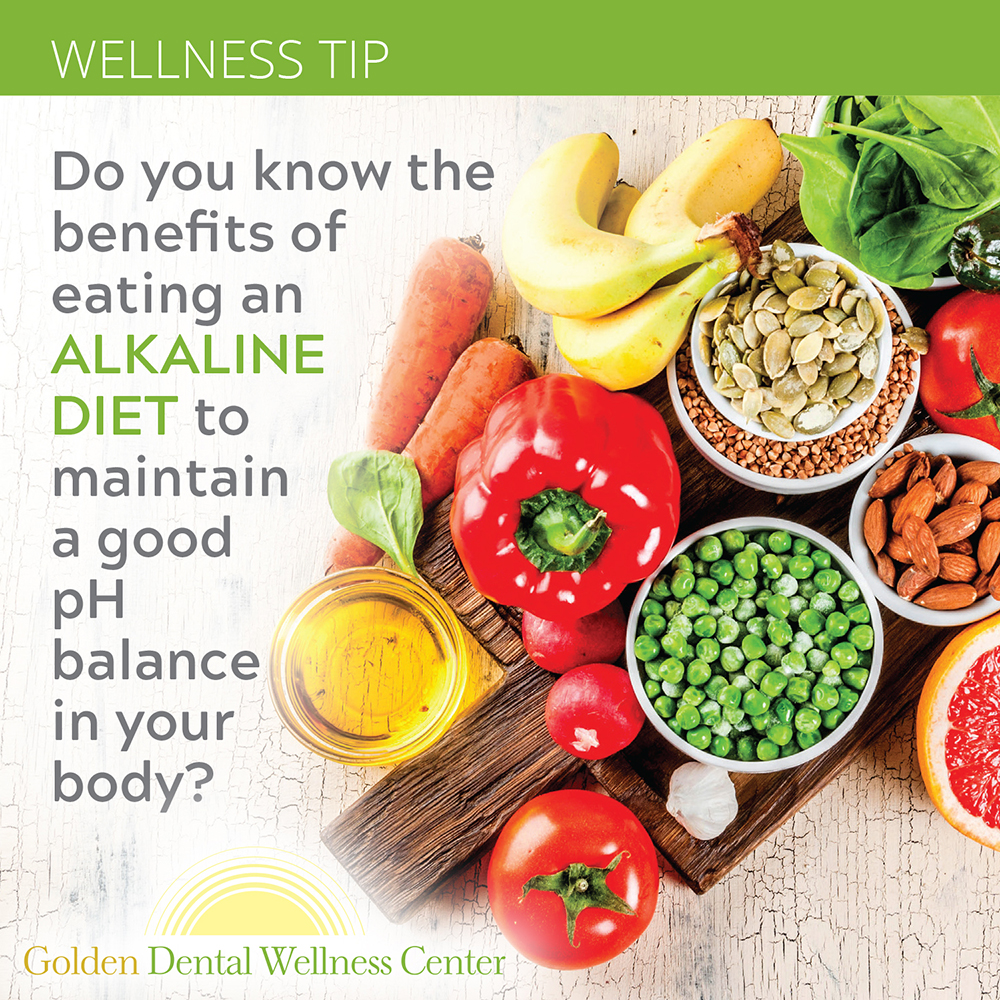
YOU’VE PROBABLY HEARD LATELY ABOUT THE IMPORTANCE OF MAINTAINING A HEALTHY PH LEVEL—hence health food store shelves flooding with alkaline waters, alkalosis foods and other products that help neutralize the body. You may not have heard how the importance of pH balance starts in the mouth.
If you’ve wondered why one kid who has poor oral hygiene never gets cavities, while your kid who brushes twice a day and sees the dentist
biannually is plagued with cavity after cavity, the culprit is likely pH. A healthy pH for saliva is in the 5.6-7.9 range. If the pH falls to 5.5 or below, there is a high risk of tooth decay and cavities, because bacteria thrive in an acidic environment.
What’s more is that acidic saliva can be detrimental not only to oral health, but overall health. A bacterial imbalance in the mouth can result in type 2 diabetes, heart disease, kidney and lung complications, obesity and more. Many people simply don’t know what they are doing wrong and become frustrated that they can’t get theirs or their kids’ oral health in check, and fear the long-term implications.
Typically, a dentist will treat a cavity directly, but not the bacterial imbalance in the mouth. This is a reactive and short-sighted solution that allows the cycle of decay to continue. The CariFree assessment and elevated pH products directly address the decay-causing acids that are a feeding bed for bad bacteria.
“The CariFree assessment is a salivary test that gives an idea of a patient’s oral environment by looking at many different aspects of their biochemistry and DNA,” says Linda Golden, DDS. “We are then able to use the results to design a comprehensive oral protocol that can combat pH-related and other dental issues in a holistic way.” CariFree assessment and pH products are mostly geared toward children, but they can also prove beneficial for patients with dry mouth, acid reflux, depression, and other conditions.
Non-abrasive and safe to use every day, CariFree elevated pH products are highly effective and scientifically proven to prevent cavities through remineralization. Dr. Golden describes that patients may use the products that fit their lifestyle, but some patients may prefer to opt for a more pure and natural approach. Being a holistic practitioner, she has extensive knowledge and expertise to design a customized program.
“Dentists should be giving not only oral health guidelines, but nutritional and lifestyle as well,” Dr. Golden shares. Some alternatives to the products presented by CariFree that she suggests to her patients include alkaline water, coconut oil pulling, xylitol, lemon water, ozone and sodium bicarbonate (baking soda). She also advises a healthy diet of alkaline foods, like fruits, legumes and vegetables; and reducing caffeine drinks, alcohol, sugar, meat and processed foods, which are all highly acidic.

Benefits of EATING an alkaline diet
- Deeper more restful sleep
- Reduction of candida overgrowth
- Increased mental acuity or alertness
- Enhanced memory and cognition
- Easier weight loss
- Increased energy
- Better bone health
- Reduced muscle wasting
- Proper cell functioning
- Healthy tissues
- Mitigation of chronic diseases
- Improved cardiovascular health
- Lowers Risk for Hypertension and Stroke
- Lowers Chronic Pain and Inflammation
- Boosts Vitamin Absorption and Prevents Magnesium Deficiency
- Helps Improve Immune Function and Cancer Protection
- Can Help You Maintain a Healthy Weight
Acid-forming foods include most:
- Grains
- Beans
- Meats
- Dairy Products
- Fish
- Fast Food
- Processed Foods
- Coffee
- Sugar
Alkaline-forming foods include most:
- Fruits
- Vegetables
- Herbs
- Nuts
- Seeds
- Herbal Teas
- Quinoa
- Certain Spring Waters
Best Alkaline Foods:
- Fresh fruits and vegetables promote alkalinity the most. Some of the top picks include mushrooms, citrus, dates, raisins, spinach, grapefruit, tomatoes, avocado, summer black radish, alfalfa grass, barley grass, cucumber, kale, jicama, wheat grass, broccoli, oregano, garlic, ginger, green beans, endive, cabbage, celery, red beet, watermelon, figs and ripe bananas.
- All raw foods: Ideally try to consume a good portion of your produce raw. Uncooked fruits and vegetables are said to be biogenic or “life-giving.” Cooking foods depletes alkalizing minerals. Increase your intake of raw foods, and try juicing or lightly steaming fruits and vegetables.
- Plant proteins: Almonds, navy beans, lima beans and most other beans are good choices.
- Alkaline water: Alkaline water has a pH of 9 to 11. Distilled water is just fine to drink. Water filtered with a reverse osmosis filter is slightly acidic, but it’s still a far better option than tap water or purified bottled water. Adding pH drops, lemon or lime, or baking soda to your water can also boosts its alkalinity.
- Green drinks: Drinks made from green vegetables and grasses in powder form are loaded with alkaline-forming foods and chlorophyll. Chlorophyll is structurally similar to our own blood and helps alkalize the blood.
- Other foods to eat on an alkaline diet include sprouts, wheatgrass, kamut, fermented soy like natto or tempeh, and seeds.













 Website Powered by Sesame 24-7™
Website Powered by Sesame 24-7™